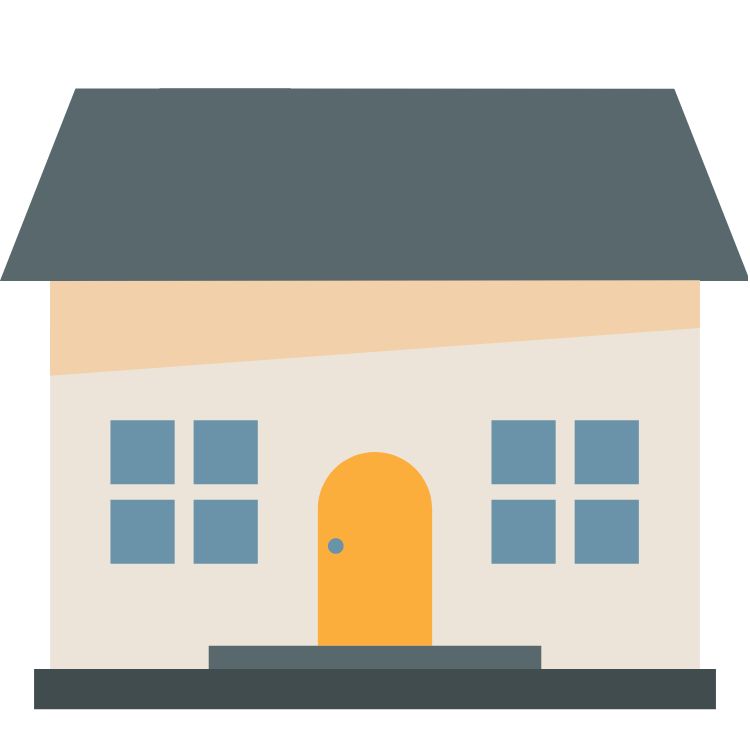What You Need to Know About Florida’s Hurricane Season
Living in Florida comes with many benefits and advantages but also brings with it a less desirable factor – hurricane season. Although winter isn’t peak season, hurricanes can happen in Florida at any time, so it is important for homeowners always to be prepared. We’ve put together a complete guide to hurricane season to help you get started and ensure that you and your family are optimally protected and prepared.
Hurricanes Can Happen in Any Part of Florida
If you live in the northern or southwestern parts of Florida, you may think you don’t need to worry about being prepared for hurricanes. However, hurricane season in Florida encompasses all of Florida.
It is a widespread misconception that hurricanes only happen in the Southeastern portion of the state, which closely borders the Caribbean. Due to the unpredictable nature of many hurricanes, it can be difficult to forecast their severity consistently when relying on geography alone.
While Southeastern Florida is the area affected by hurricanes the most, major storms have also been recorded as occurring in parts of Northwestern Florida, near Tallahassee and the Alabama state border. Homeowners are encouraged to have at least seven days worth of supplies during hurricane season – otherwise, you may find yourself without supplies such as food, water, medicine, and batteries.
Peak Hurricane Season Lasts from June 1 – November 30
Hurricane season in Florida begins June 1, right after the air has warmed up following Spring, and ends on November 30. Peak season starts between the beginning of August and near the end of October, leaving homeowners plenty of time to prepare.
Hurricanes Are Just One Type of Severe Storm in Florida
Hurricanes are just one of four classifications for severe storms in the Sunshine State. The four major categories are:
- Tropical Depression (33-knot winds or less)
- Tropical Storm (34 to 63 knots)
- Hurricane (64 knots or higher)
- Major Hurricane: Winds that exceed 110 mph on the Saffir-Simpson Scale (category 3 or higher)
For a storm to be given a designation, it must sustain one of these maximum surface wind speed ranges for one minute or longer.
Hurricanes are Categorized Based on the Saffir Simpson Scale
Hurricanes are typically categorized using the Saffir-Simpson Scale, which is the standard for classifying storms and designating them between a major or regular hurricane as follows:
Category 1: 64-82 knot winds. Moderate damage like damaged roofs, broken branches, and downed power lines will occur.
Category 2: 83-95 knot winds. Extensive damage will occur, including significant roof and siding damage, risk of uprooted trees, and expected total or near-total power outages.
Category 3 (Major Hurricane): 96-112 knot winds. Designated as devastating damage potential. Similar damage to Category 2 with greater potential for lingering water and electricity outage.
Category 4 (Major Hurricane): 113-136 knot winds. Catastrophic levels of damage. Most homes can expect loss of roof and wall damage, most trees and utility poles will be downed, utility loss and inhabitable conditions to be expected for weeks or months.
Category 5 (Major Hurricane): 137-knot winds or higher. Storm forces will obliterate most homes, extensive downed trees, isolated neighborhoods, and long-term utility outages.
How to Prepare
Preparing for hurricane season is a big topic for Floridian homeowners every year. Unlike many other types of natural disasters, you will typically have advance notice of an impending storm, which gives you ample time to make sure you have everything you need. Here are a few things you can do to ensure that you’re already ready for the unexpected:
- Stay up to date with weather news year-round
- Create emergency evacuation kits for each member of your household
- Familiarize yourself with local evacuation routes
- Evacuate as soon as possible if ordered or recommended
- Plan where you will evacuate to once you’ve left
- Secure important documents in a waterproof container or safe (bring with you if able)
- Prepare your home for your absence before leaving
Putting together a hurricane plan ahead of time reduces the chances of finding yourself without essential supplies like batteries, flashlights, bottled water, and battery-operated radios. Set aside time at the beginning of the season to ensure your plan is a place.
Protect Your Home with Impact-Rated Windows
Paradise Exteriors is the proud leading provider of impact-rated windows in Florida. With no maintenance required, custom-cut glass, and an unbeatable warranty, you can provide superior protection to your home during Florida Hurricane Season. To get started, contact us online today for a free estimate.



